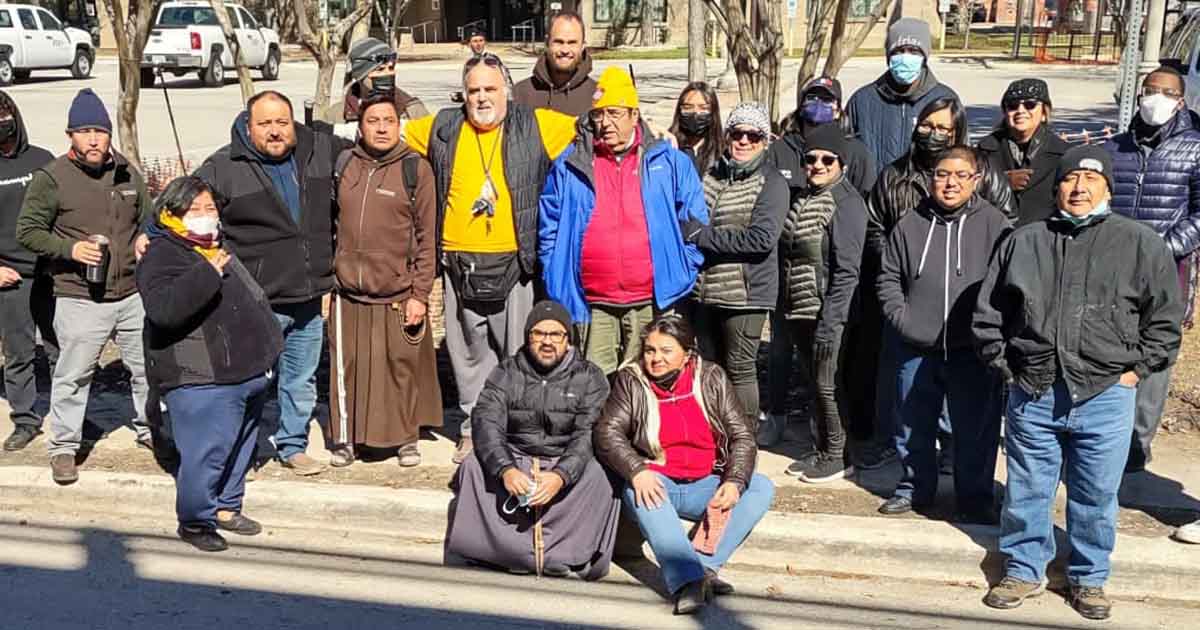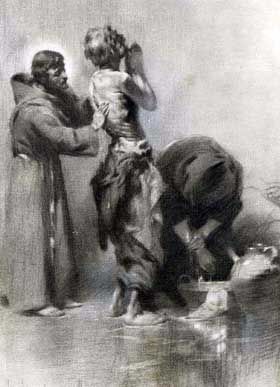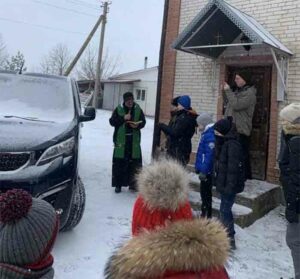Friar Pedro Lopez reflects on his pastoral experience with Franciscan Joy
The poor tell us what kind of society and world we live in. A world that is not too concerned with the poor and the hungry. A world where there will always be poor people who go hungry and have nothing to eat, who go days without eating, who can’t take warm showers in the winter. And this is a sad global reality.
The poor are the ones Jesus was most partial to, the ones who most reach the heart of God. What Jesus wants to make clear in an unjust world is that those who do not interest anyone are the ones who most interest God. Those whom we marginalize are those who occupy a privileged place in Jesus’ heart. Those who have no one to defend them, have Him as their Father, who is our Father.
Therefore the poor, more than anyone else, give us light and hope to see our own reality; the anawim, ‘the poor ones,’ shake our conscience and invite us to conversion. The poor, marginalized and oppressed, can make us more human, more capable of solidarity and generosity. Jesus has the strength of his word, and that is why the beatitudes (LK 6: 17, 20-26) come to mind as I reflect on this experience.
Lumen Gentium (LG) is church document from Vatican II (VAII) that contributes to my understanding of this pastoral experience, in respect to the role of the church to all humanity. LG shifts points to a community-based Church where we are created in the image and likeness of God, so we need to recover the awareness of our dignity and responsibility as baptized people in and for a world that needs our involvement and commitment. According to LG, the Church must be at the service of the people of God, because that is its essence and vocation; its concrete historical unfolding is God’s people.
As a Franciscan friar I can see this in the encounter Francis has with the leper, which is a turning point for Francis because it is where he has a deeper conversion. Francis embraces a leper whom he was disgusted by. Francis began to see the presence of God in all creatures and with this embrace, Francis was able to see God’s presence in the poor.
Therefore, the poor are a sign of the presence of God.
And so, this pastoral experience has called me to a continual commitment with Franciscan Joy because it is the historical praxis of the church as mentioned in Lumen Gentium, which is precisely to be in solidarity with the poor and to be generous with the poor. As Jesus partialized with the poor, as baptized Christian Catholics, as friars, we are his hands and feet in the world who can show closeness as Jesus did when he interacted with the poor, marginalized, and oppressed of society.
– friar Pedro Lopez OFM Conv.
In case you missed parts one and two:




